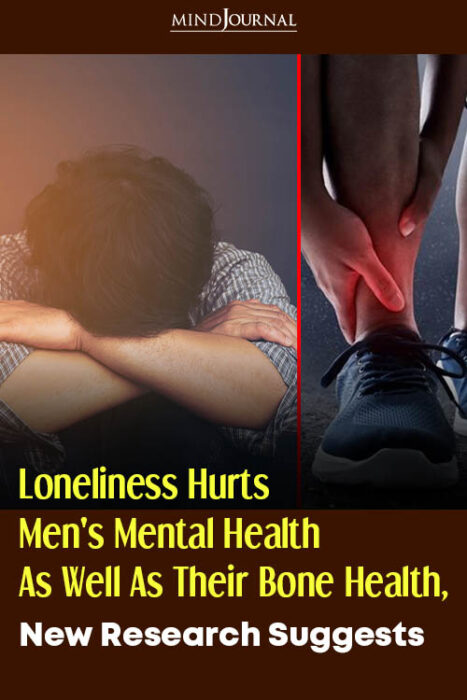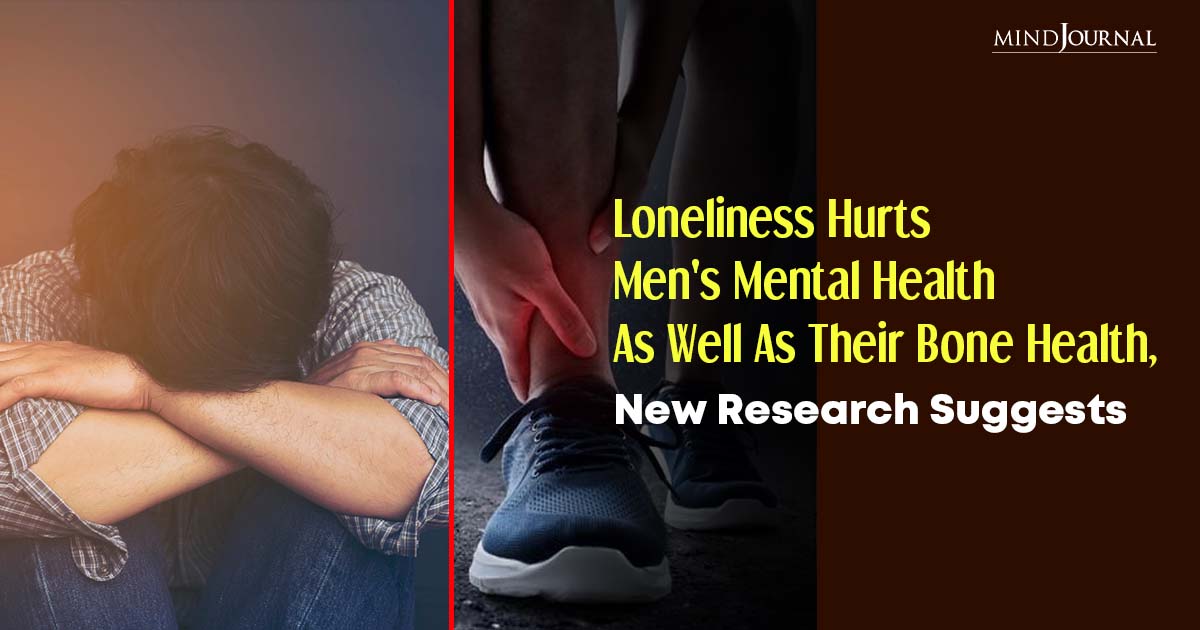As reported by Fox News, loneliness hurts mens mental health as well as has detrimental effects on their bone health, as revealed by a recent study.
While social isolation appears to negatively affect the bone health of men, the same does not hold true for women, according to researchers.
The study, led by Dr. Rebecca Mountain of the Maine Health Institute for Research in Scarborough, sheds light on the growing public health concern of social isolation, particularly among older adults.
Related: 6 Types Of Loneliness And How To Deal With Them
Social Isolation And Loneliness Hurts Mens Mental Health, As Well As Their Bone Health
Dr. Mountain emphasized that social isolation represents a significant form of psychosocial stress and has been a subject of increasing concern even before the COVID-19 pandemic exacerbated the prevalence of loneliness.
Various health conditions, including mental disorders, as well as higher rates of illness and mortality, have been associated with being lonely.
Previous clinical research has established that psychosocial stressors and subsequent mental health disorders pose significant risks for osteoporosis and fractures, which disproportionately affect older adults.
However, the specific impact of social isolation on bone health has not been thoroughly explored until now.
To investigate the effects of social isolation, the researchers conducted a study using adult mice. The mice were either individually housed or grouped together with three other mice for a period of four weeks.
The results demonstrated that social isolation led to notable reductions in bone quality, including decreased bone mineral density, exclusively in the male mice, while no such effects were observed in the female mice.
The study’s abstract indicated that isolated male mice displayed indications of reduced bone remodeling, characterized by decreased numbers of osteoblasts (cells responsible for new bone formation) and altered expression of genes related to osteoblasts and osteoclasts (cells involved in bone resorption).
Conversely, isolated female mice exhibited increased expression of genes related to bone resorption, without any changes in bone mass.

More Research Might Be Needed
Dr. Mountain stressed the need for further research to fully understand the mechanisms and timeline through which social isolation affects bone health in female mice. Additionally, she highlighted the importance of investigating how these findings can be applied to human populations.
As the world grapples with the long-term consequences of the surge in social isolation caused by the COVID-19 pandemic, this study provides critical insights into the effects of isolation on bone health and holds significant clinical implications.
The study was presented at ENDO 2023, the annual meeting of the Endocrine Society, held in Chicago, Illinois. The Endocrine Society is an international community of physicians and scientists committed to advancing scientific discoveries and enhancing patient well-being.
The Maine Health Institute for Research supports a wide range of research, spanning from fundamental laboratory-based investigations to translational research that aims to apply basic discoveries to medical challenges.
Related: Surprising Ways Loneliness Impacts Our Health and Wellbeing
The institute also conducts clinical research, focusing on the direct application of new treatment protocols, drugs, and devices to patients. Furthermore, they engage in health services research, utilizing research methods to improve and assess healthcare delivery programs and new technologies.
10 Simple Strategies For Dealing With Loneliness And Social Isolation As A Man
- Acknowledge your feelings.
- Reach out to friends and family.
- Join social or hobby groups.
- Seek professional help if needed.
- Volunteer or engage in community activities.
- Take care of your physical health.
- Explore online communities.
- Develop new skills or pursue hobbies.
- Practice self-care.
- Be open-minded and approachable.
As society continues to address the long-lasting implications of feeling lonely, and how loneliness hurts mens mental health, studies like this provide valuable insights into the broader health consequences and contribute to the development of strategies aimed at mitigating the negative effects on bone health and overall well-being.









Leave a Reply
You must be logged in to post a comment.